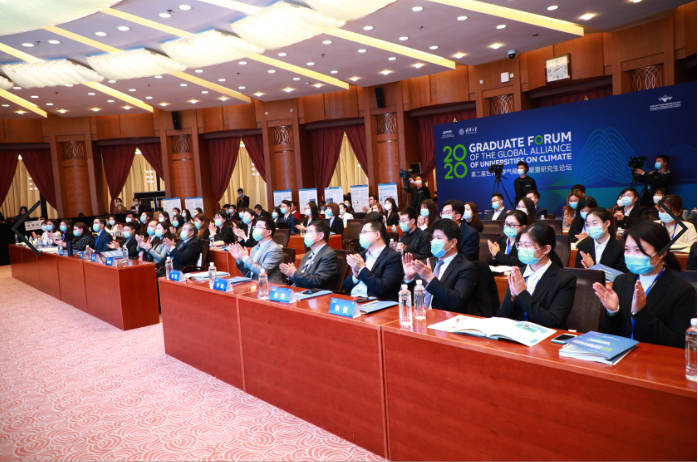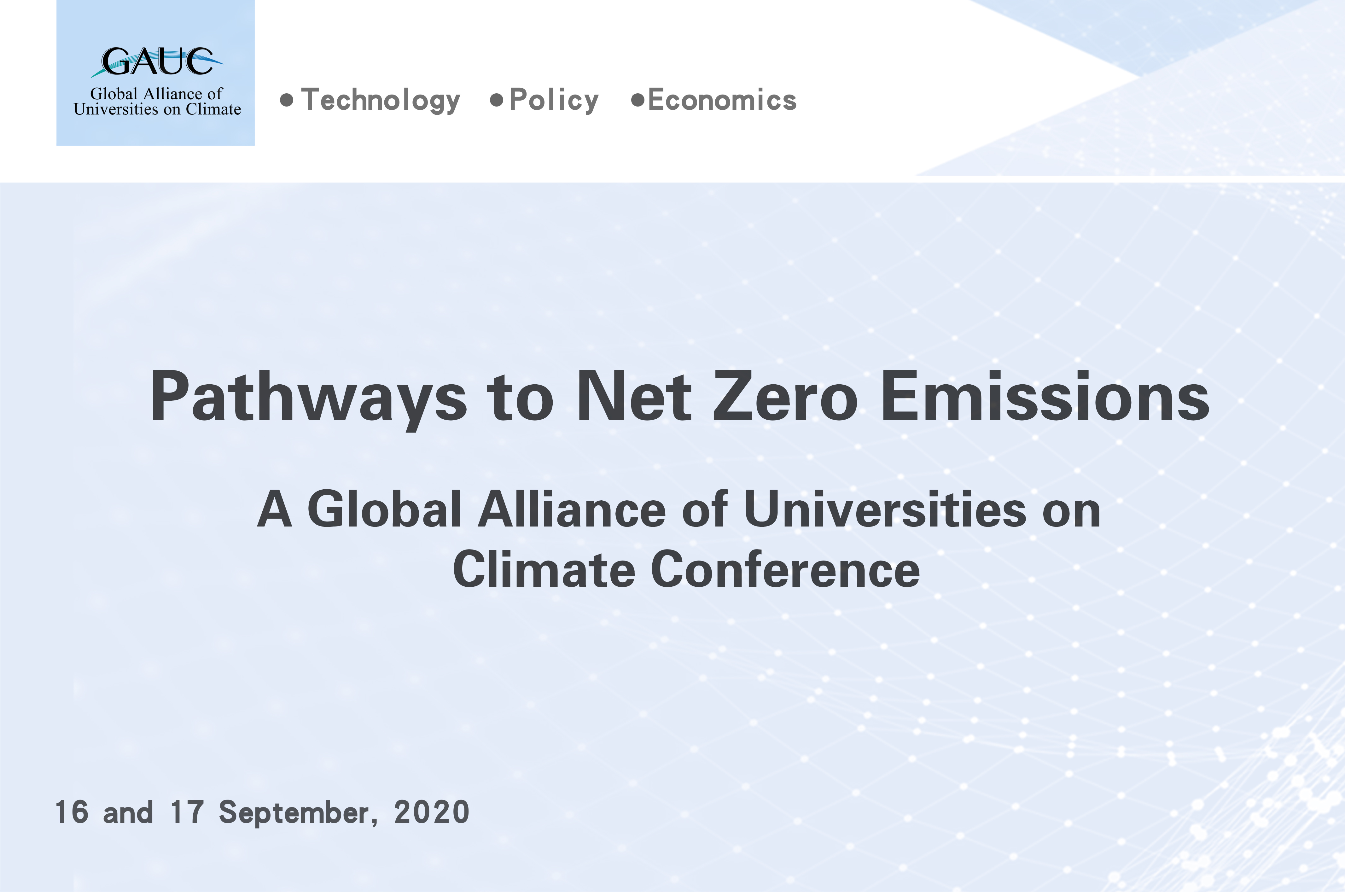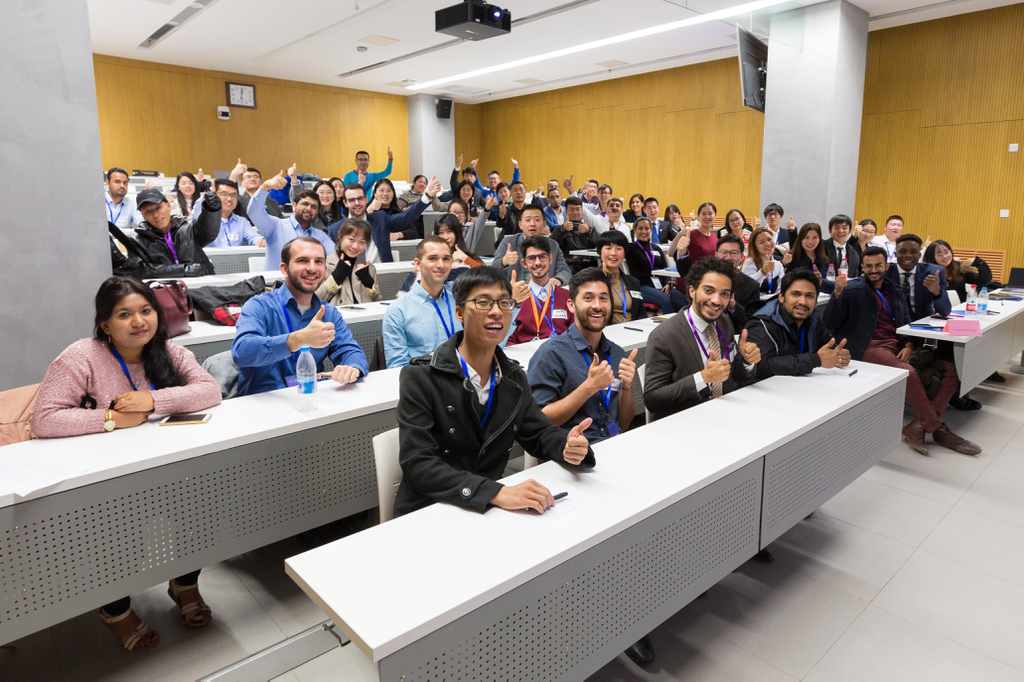At COP26, Campus Decarbonization Workshop 2021 Report and Good Practice Book was released during the COP 26 GAUC Panel: University Contributions to Deep Decarbonization Pathways organized.
Download the report.
Campus Decarbonization Workshop focus on sharing challenges and good practices regarding campus decarbonization among GAUC member universities, with heightened awareness of campus management challenges in the post-COVID-19 world. The workshop will focus on the following topics:
• Member university’s CO2 emissions and decarbonization ambitions
• Examples of measures taken to reduce emissions
• Brief outline of member university’s future plans and key areas of focus
• Key challenges and barriers encountered
• How to engage with students on decarbonization efforts.
Through the workshop all participants could share information and study ways to engage with global sustainability efforts. Thereby, assist and encourage GAUC member institutions to develop and implement decarbonization processes suited to their unique circumstances.
1.Leading role -University campuses are microcosm of society and Universities can lead the effort of decarbonization of society and provide best practices.
2.Knowledge for action -University is a place that brings together high levels of expertise, and for this reason, universities should be capable of decarbonizing their own campuses.
3.Active communication -The nature of universities as institutions that serves the global public and its links with governments, economies and industries which enables universities to contribute strongly in promoting policies that should be truly prioritized as well as developing and implementing technologies into society.
4.Resources towards the next generations- University campuses are full of active students. And the involving students in decarbonization efforts on campuses would be of great significance in terms of training the next generation of human resources.
Date: Thursday, 11 March 2021
Format: Zoom Webinar, 20:00-23:00 (JST) / 11:00-14:00 (GMT)
Registration: https://zoom.us/webinar/register/WN_gtA6igwbTuW96IX9hkjYBg











We welcome wide participation of all staff and students of GAUC member institutions. Pre-registration will be required, but there will be no fees. We look forward to your attendance!
- end -
LSE is a world leading international university located in the heart of London. We educate around 11,900 students from 133 countries, employ around 3,300 members of staff, and manage 30 campus buildings and 8 halls of residence.
Creating a Sustainable LSE is a key commitment of LSE’s 2030 strategy, and reaching net-zero carbon integral to our Sustainability Strategic Plan. LSE takes a systematic approach to measure, reduce and mitigate its carbon emissions. We have been measuring our scope 1 and 2 carbon emissions since 2005 and quantifying our indirect scope 3 emissions is an ongoing project.
LSE’s carbon footprint for scope 1 and 2 emissions, linked to our use of energy, was 7,069 tonnes CO2e in 2019/20, a reduction of 46 per cent since 2005. This was the result of grid decarbonisation in the UK and over £4.8million of investment in energy efficiency projects across campus. LSE’s target is to achieve net-zero carbon emissions by 2030 for scope 1 and 2, and 2050 at the latest across all scopes, by adopting a challenging carbon reduction pathway aligned to climate science.
In addition to carbon reduction efforts, LSE will also this year mitigate the impacts of its residual emissions, by continuing to source 100% of the electricity we buy from renewable sources (e.g. solar and wind) and fund high-quality certified offsets schemes in the UK or abroad, making LSE the first carbon neutral university in the UK.
The University of Cambridge has set a Science Based Target (SBT) committing itself to reduce its scope 1 and 2 emissions to absolute zero by 2048, with an aspiration to be a decade ahead of its decarbonisation pathway at all times and to reach zero-carbon by 2038. SBTs are developed using models that calculate the level of carbon reduction a particular organisation needs to achieve in order to do its ‘fair share’ in reducing global emissions. As their starting point, the models reflect the amount by which global emissions need to be reduced to ensure that the goals set out in the 2015 Paris Agreement are achieved.
The programme of works to achieve this ambitious target includes:
· looking at options to eliminate gas used for heating;
· developing renewables on University land;
· sourcing all electricity from zero carbon sources;
· energy efficiency improvements across the estate.
In addition to outlining the approach being taken by the University of Cambridge, this presentation will discuss the challenges involved including the setting of boundaries in a complex and highly devolved governance structure. It will also cover the opportunities and challenges that Covid-19 presents for advancing the University’s carbon reduction agenda.
Keywords: science based target; zero-carbon; policies; eliminating ga
UFRJ’s history dates back to the beginning of the 19th century and is filled with remarkable scientific, cultural, and artistic accomplishments. It is currently the 3rd best university in Brazil and the 7th best university in Latin America (QS Rankings – 2018).
With many campuses and faculties scattered around Rio de Janeiro State, it comprises institutes, schools, and other facilities, including museums, hospitals, and the third largest ocean basin in the world for research on offshore oil exploitation. It houses the Alberto Luiz Coimbra Institute for Graduate Studies and Engineering Research (Coppe), the largest engineering teaching and research center in Latin America.
Coppe – is Latin America’s largest center for research and education in engineering. It was founded in 1963 by the engineer Alberto Luiz Coimbra. With Coppe, Coimbra contributed to the introduction of graduate studies in Brazil. The institution has awarded more than 13 thousand masters and doctors’ degrees from its 13 departments. Based on three pillars – academic excellence; full-time faculty and students, and commitment to society –, Coppe has distinguished itself by producing knowledge, highly qualified professionals, and innovative teaching methods. With all that, Coppe has become a model for other universities and research institutes across the country. Leading one of the projects of UFRJ named as “Sustainable Campus”. focus on the diffusion of new disruptive sustainable technologies and improve environmental indicators. To contributes to building of a sustainable society through education, research, collaborating with the society and campus development.

Everything to Know about the Global Alliance of Universities on Climate Graduate Forum

Climate experts call for rapid action to reach net zero emissions

Chinese President Xi Jinping sends letter in reply to student representatives of the Global Alliance of Universities on Climate
